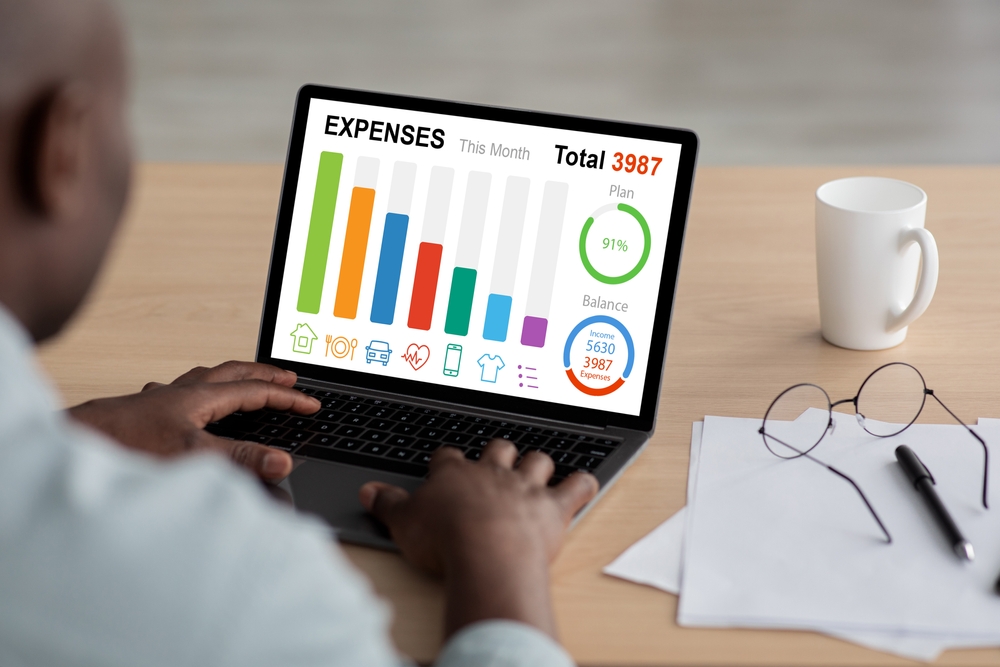Managing money can be a real challenge, especially when your budget is tight. But don’t worry, there are plenty of practical ways to save without feeling deprived. These tips aren’t just about cutting back; they’re about making smart choices that can help you stretch every dollar. Whether you’re trying to pay off debt, save for a big purchase, or just make ends meet, these practical savings hacks will help you get there faster.
Contents
- 1 Track Every Cent
- 2 Create a Realistic Budget
- 3 Use Cash Envelopes
- 4 Automate Savings
- 5 Reduce Utility Bills
- 6 Cook at Home
- 7 Use Coupons and Cashback Apps
- 8 Cut the Cable Cord
- 9 Buy Generic Brands
- 10 Shop Secondhand
- 11 Cancel Unused Subscriptions
- 12 DIY Where Possible
- 13 Use Public Transportation
- 14 Negotiate Bills
- 15 Limit Impulse Purchases
- 16 Make Use of Libraries
- 17 Grow Your Own Food
- 18 Sell Unused Items
- 19 Plan Purchases Around Sales
- 20 Avoid Debt
- 21 Use Energy-Efficient Appliances
- 22 Limit Dining Out
- 23 Utilize Free Entertainment
- 24 Optimize Grocery Shopping
- 25 Practice Mindful Spending
- 26 More From RetailShout
- 27 19 Quick and Easy Dinner Ideas Using Only Trader Joe`s Ingredients
- 28 18 Trader Joe`s Pantry Staples That Are Perfect for Busy Weeknights
Track Every Cent

Understanding where your money goes is the first step to savings. Utilize budgeting apps or a simple spreadsheet to log every expense. This practice highlights unnecessary expenditures. Once you identify these, you can cut back or eliminate them. Regularly reviewing your expenses can also prevent overspending. Awareness is crucial in making informed financial decisions.
Create a Realistic Budget

Craft a budget that reflects your actual income and expenses. Prioritize essential expenses like rent, utilities, and groceries. Allocate a portion for savings, even if it’s small. Adjust the budget monthly to accommodate changes in income or expenses. Stick to your budget strictly to avoid unnecessary debt. A well-structured budget is a roadmap to financial stability.
Use Cash Envelopes

The cash envelope system helps control spending. Allocate cash for different categories such as groceries, entertainment, and dining out. When an envelope is empty, spending in that category stops until the next period. This method discourages overspending and encourages mindful purchasing. It also makes you more aware of your spending habits. Physical cash often feels more tangible than digital transactions.
Automate Savings

Set up automatic transfers to your savings account. This ensures that a portion of your income is saved before you have a chance to spend it. Treat your savings like a non-negotiable bill. Automated savings reduce the temptation to skip contributions. Over time, these small amounts accumulate into significant savings. It’s a simple yet effective way to build financial security.
Reduce Utility Bills

Simple changes can lower utility costs significantly. Switch to energy-efficient bulbs and unplug appliances when not in use. Consider a programmable thermostat to optimize heating and cooling. Regularly maintain HVAC systems for efficiency. Lower the water heater temperature and fix leaky faucets. Small adjustments can lead to substantial savings over time.
Cook at Home

Eating out frequently drains your budget quickly. Plan and prepare meals at home to save money. Batch cooking and meal prepping can make this more manageable. Use leftovers creatively to avoid waste. Cooking at home also allows you to control portions and ingredients. Over time, home-cooked meals can significantly reduce your food expenses.
Use Coupons and Cashback Apps

Coupons and cashback apps can save a considerable amount on everyday purchases. Look for coupons online or in newspapers before shopping. Apps like Rakuten or Honey offer cashback on online purchases. Combine these savings methods with sales for maximum benefit. Regularly check for updates and new offers. These tools make saving effortless and rewarding.
Cut the Cable Cord

Streaming services are often cheaper than traditional cable. Evaluate your viewing habits and choose the most cost-effective options. Many services offer free trials or discounts for new subscribers. Cancel subscriptions you rarely use. Sharing accounts with family or friends can also lower costs. Cutting cable can free up funds for other priorities.
Buy Generic Brands

Generic brands often offer the same quality as name brands at a lower cost. Compare ingredients and reviews to ensure quality. This applies to groceries, medications, and household items. Buying generic can result in significant savings over time. Don’t be swayed by brand loyalty if a cheaper alternative exists. This habit can reduce your overall spending.
Shop Secondhand

Secondhand stores offer quality items at a fraction of the price. Look for clothes, furniture, and appliances. Online platforms like eBay or Facebook Marketplace are also good sources. Always inspect items for quality before purchasing. Thrift shopping can be both economical and environmentally friendly. It’s a great way to find unique items while saving money.
Cancel Unused Subscriptions

Review all your subscriptions and cancel those you don’t use regularly. This includes magazines, streaming services, and gym memberships. Many people forget about small recurring charges that add up over time. Use an app or service to track and manage subscriptions. Cancelling unused services frees up money for more important expenses. Regular reviews can prevent unnecessary spending.
DIY Where Possible

Doing things yourself can save a lot of money. This includes home repairs, car maintenance, and personal care. Many resources online offer tutorials and guides. Invest in basic tools and supplies for DIY projects. Start with small tasks and gradually take on more complex ones. DIY not only saves money but also builds valuable skills.
Use Public Transportation

Public transportation is often cheaper than owning a car. Calculate the cost of gas, maintenance, insurance, and parking. Compare this to the cost of public transit passes. Walking or biking for short distances can also save money and improve health. Carpooling is another alternative. Reducing car usage can lead to significant savings.
Negotiate Bills

Many bills are negotiable, including medical, cable, and phone bills. Call service providers and ask for discounts or payment plans. Compare rates and switch to cheaper providers if necessary. Use polite but firm negotiation tactics. Regularly review bills for errors or unnecessary charges. Successful negotiations can reduce monthly expenses considerably.
Limit Impulse Purchases

Impulse buying can quickly derail a budget. Implement a waiting period for non-essential purchases. This gives you time to consider if you really need the item. Make a shopping list and stick to it. Avoid browsing online stores or malls without a purpose. Reducing impulse purchases keeps your budget on track and prevents regret.
Make Use of Libraries

Libraries offer free access to books, movies, and sometimes even tools. Many also provide free events and classes. Borrowing instead of buying can save a lot of money. Check out digital resources like e-books and audiobooks. Libraries are a valuable resource for lifelong learning and entertainment. Utilizing them maximizes your budget’s value.
Grow Your Own Food

Starting a small garden can reduce grocery bills. Grow vegetables, herbs, and fruits that you use regularly. Gardening can be done in backyards or even in small containers. It’s also a rewarding hobby that provides fresh, organic produce. Initial costs are low, and the long-term savings are substantial. Growing your own food promotes sustainability and health.
Sell Unused Items

Declutter your home and sell items you no longer need. Use online platforms like eBay, Craigslist, or local buy-and-sell groups. This not only generates extra income but also creates more space. Regularly declutter to keep this habit. You’ll be surprised at how much you can make from items gathering dust. It’s a simple way to boost your budget.
Plan Purchases Around Sales

Timing your purchases around sales can lead to significant savings. Know when major sales events like Black Friday or end-of-season sales occur. Plan big purchases accordingly. Use price tracking tools to get alerts when items drop in price. Patience pays off when you wait for the right time to buy. This strategy ensures you get the best deals.
Avoid Debt

Interest payments on debt can drain your finances. Focus on paying off existing debt as quickly as possible. Avoid taking on new debt unless absolutely necessary. Create a debt repayment plan with clear goals. Consider consolidating high-interest debts to lower rates. Living debt-free gives you more financial freedom and less stress.
Use Energy-Efficient Appliances

Invest in energy-efficient appliances to lower utility bills. Look for ENERGY STAR-rated products. These appliances use less electricity and water. Over time, the savings on utility bills offset the initial investment. Regular maintenance ensures they run efficiently. Energy-efficient choices are both cost-effective and environmentally friendly.
Limit Dining Out

Dining out is more expensive than eating at home. Save eating out for special occasions. Plan and prepare meals in advance to avoid the temptation. Look for deals and discounts if you do eat out. Share meals to reduce costs. Limiting dining out can significantly lower your monthly expenses.
Utilize Free Entertainment

Many entertainment options are free or low-cost. Look for community events, free concerts, and public parks. Libraries often host free events and activities. Enjoying nature through hiking or picnics is also free. Be creative in finding low-cost ways to have fun. Free entertainment keeps your budget intact without sacrificing enjoyment.
Optimize Grocery Shopping

Plan meals and make a grocery list to avoid impulse buys. Compare prices between stores and buy in bulk when possible. Use coupons and look for sales to save money. Avoid shopping when hungry to prevent unnecessary purchases. Stick to your list and budget strictly. Efficient grocery shopping reduces waste and costs.
Practice Mindful Spending

Mindful spending means being conscious of every purchase. Ask yourself if you really need an item before buying it. Consider its long-term value and impact on your budget. Avoid retail therapy and emotional spending. Reflect on your financial goals regularly to stay motivated. Mindful spending leads to better financial health and satisfaction.
This article originally appeared on RetailShout
More From RetailShout
13 Trader Joe`s Seasonal Items You Shouldn`t Miss

Each season brings new excitement to the shelves of Trader Joe’s, where seasonal items quickly become fan favorites. These limited-edition products are not only delicious but also perfectly capture the flavors and moods of the time of year. Read More.
19 Quick and Easy Dinner Ideas Using Only Trader Joe`s Ingredients

Trader Joe’s is a treasure trove of unique and high-quality ingredients, perfect for creating quick and delicious dinners. Whether you’re a seasoned chef or just looking for something easy to whip up after a long day, these dinner ideas are designed to be both satisfying and simple. Read More.
18 Trader Joe`s Pantry Staples That Are Perfect for Busy Weeknights

When the week gets hectic, having a well-stocked pantry can make all the difference in getting dinner on the table. Trader Joe’s offers a variety of pantry staples that are not only convenient but also packed with flavor. Read More.






